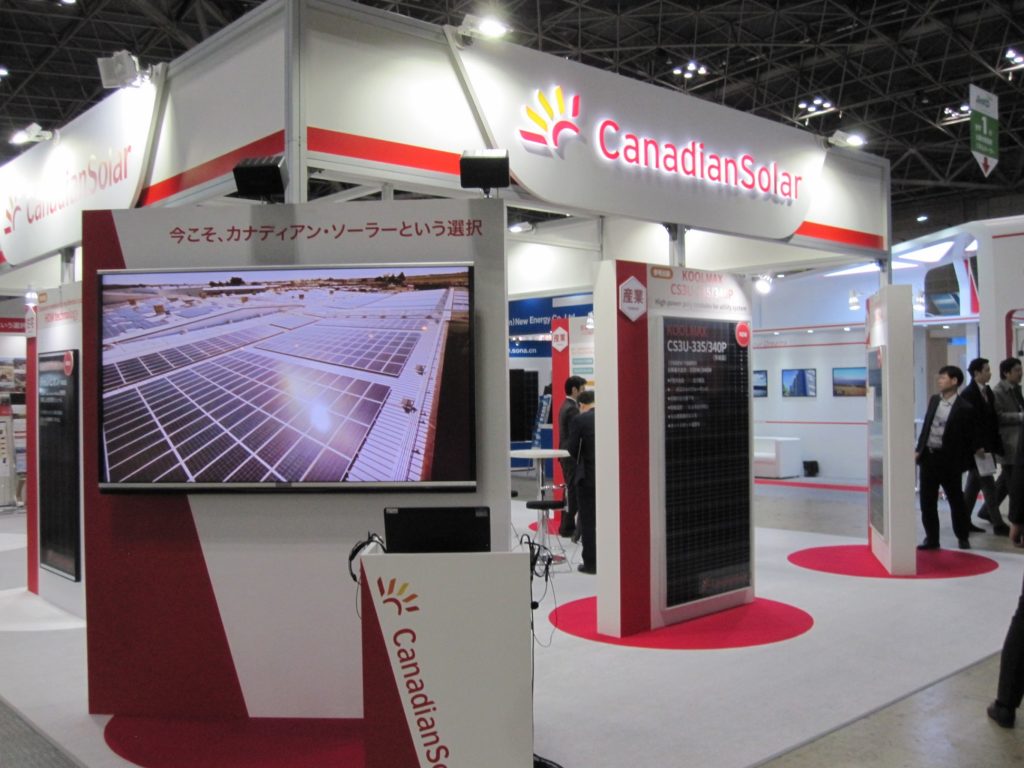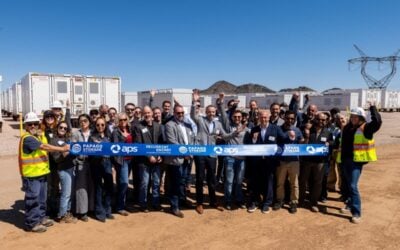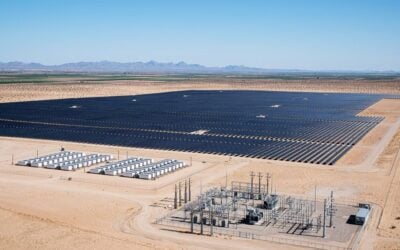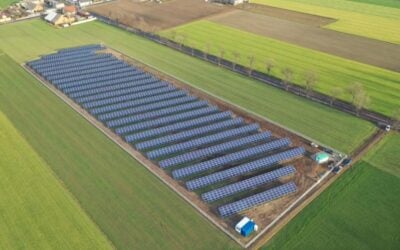
Canadian Solar has seen a “surge in demand for battery storage capacity,” CEO Dr Shawn Qu said, as the vertically-integrated solar PV company reported its latest quarterly financial results.
Returning to profit in its manufacturing division, CSI Solar, and reporting record quarterly revenue of US$1.43 billion in Q2 2021, Canadian Solar however experienced continued industry headwinds which have led the company to reduce its total PV module shipment guidance for the year, our sister site PV Tech reported last week.
Enjoy 12 months of exclusive analysis
- Regular insight and analysis of the industry’s biggest developments
- In-depth interviews with the industry’s leading figures
- Annual digital subscription to the PV Tech Power journal
- Discounts on Solar Media’s portfolio of events, in-person and virtual
Ranked as one of the ‘Solar Module Super League’ (SMSL) of big players by PV Tech, Canadian Solar reported second quarter PV module shipments from CSI Solar of 3.7GW, which was towards the top end of its guidance. However, factors including polysilicon and freight transport cost increases drove the company to reduce its module shipment guidance for 2021 down from the 18 – 20GW range to 16 – 17GW.
You can read about Canadian Solar’s PV business results in PV Tech’s news section here and some deeper analysis on PV Tech Premium here.
‘Big money is coming into the clean energy sector’
The company has previously said that it expects big things from battery storage, targeting a 10% share of the US market in 2021 and making inroads into other territories. This year it offered guidance on battery storage shipments for the first time, with 810 – 860MWh expected and company executives reiterated this guidance in an earnings call.
Canadian Solar delivered its first 300MWh battery storage shipment in the quarter just passed, worth about US$17 million in revenue. Through its development arm, the company has 2.3GWh of battery storage projects under contract, with around 1.5GWh of that under construction.
CEO Qu said that “global efforts toward a clean energy transition are generating a demand for battery storage capacity to support more reliable power grid,” and described the initial shipment as “big progress” for the company, while he said its project development pipeline now stands at 19GWh.
“Storage represents another major long-term growth opportunity for us. We are well positioned with bankable solutions, strong customer demand and expect meaningful growth,” the CEO said.
In May, Qu had said that Canadian Solar has been on a “transformational journey” to capture more value from the battery storage market through its manufacturing, project and energy businesses.
Corporate vice president and Energy Business president Ismael Guerrero Arias said that over the past several quarters there has been a large increase in demand for both solar and storage projects, which he said came from existing and new investors that have low cost of capital as well as “ambitious climate mandates”.
“Big money is coming into the clean energy sector,” Arias said.
While a big majority of Canadian Solar’s contracted projects are in the US storage hotspot of California and include standalone energy storage, solar-plus-storage new builds and retrofits, the company also won Colombia’s first-ever energy storage tender for a 45MW / 45MWh project.
Big California projects include Crimson, a 1,400MWh standalone battery energy storage system (BESS) for which US developer subsidiary Recurrent Energy signed a 600MWh contract with utility Pacific Gas & Electric a few weeks ago, following an 800MWh contract already signed with Southern California Edison, another of California’s three main investor-owned utilities (IOUs).
Ismael Guerrero Arias said that while Crimson and other California projects are four-hour duration lithium-ion batteries that will provide local capacity under Resource Adequacy contracts with utilities, the company is also “exploring alternatives” in uncontracted merchant markets where he said there is more long-term value.
“We see significant growth in demand for battery storage across all global markets. The US is currently the largest on most advanced market, but we see significant opportunities worldwide given the widespread need for grid reliability, particularly with growing penetration of clean energy and the increasing occurrence of extreme weather events,” Arias said.
Conference call transcript by The Motley Fool






